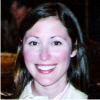By Colleen Glenn
Congratulations are in order for graduate student Jonathan Meyer who has been awarded a fellowship to attend The American School of Classical Studies at Athens next year. Meyer, a Master’s student in the UK Classics Department, will spend the 2012-2013 school year in Greece studying the history and culture of ancient Greece and the Hellenic world.
“When I found out that I had won the fellowship, I was thrilled,” said Meyer. “For months I had imagined myself living in Athens and walking daily in the footsteps of Socrates. Now I knew that that dream was about to be realized.”
A student and teacher of Latin, Meyer also specializes in the Greek language and passed examinations in ancient Greek translation and Greek literature as part of the selection process















